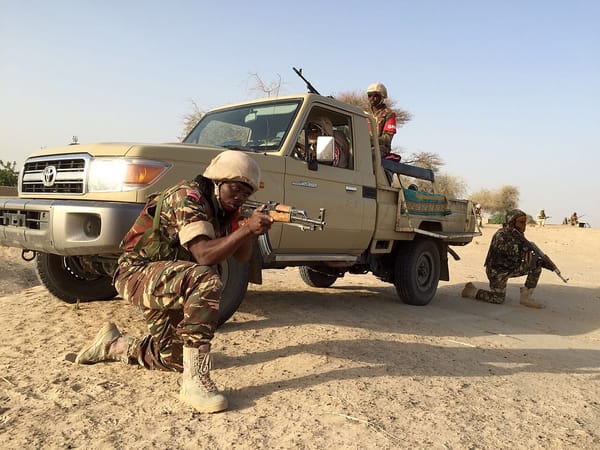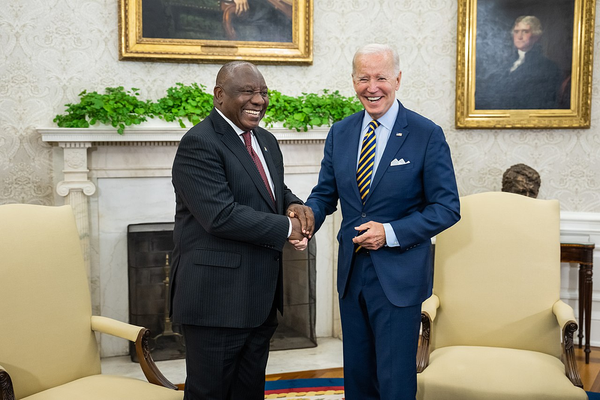An Alternate World-Order Is Being Built With BRICS
Navigating these challenges effectively will mean the emergence of BRICS as a force capable of shaping the global South's economic and geopolitical trajectory.
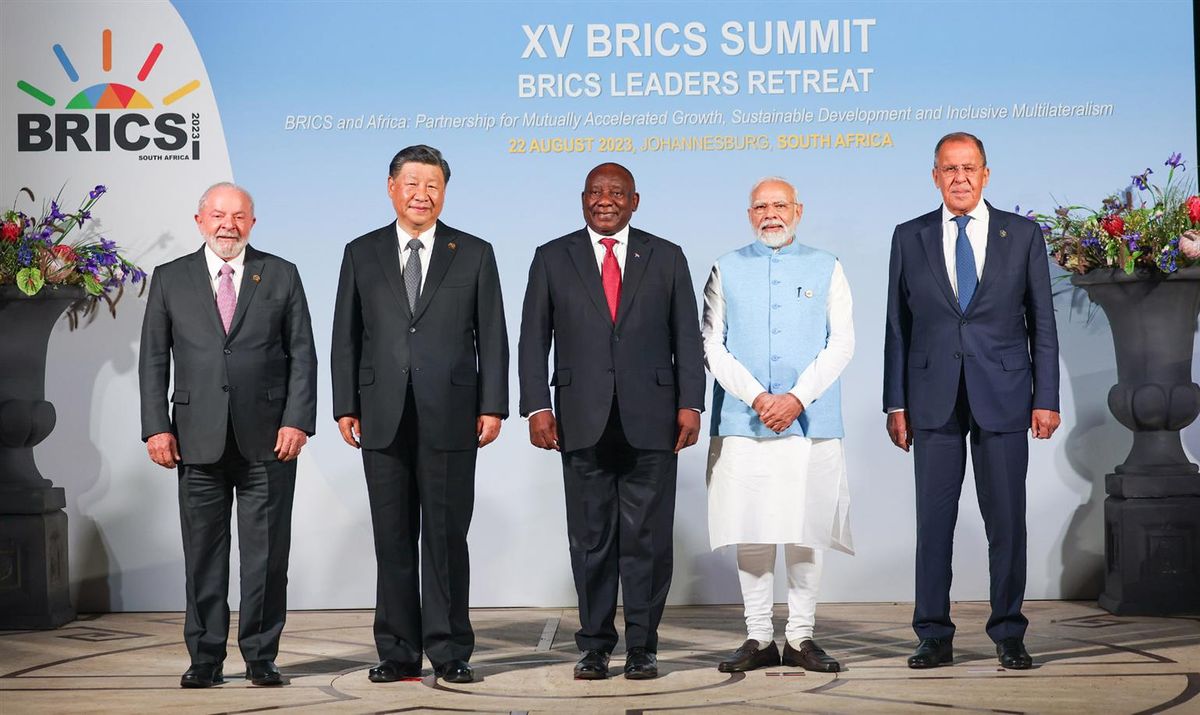
The BRICS Alliance: Shaping the Global Landscape
In the dynamic landscape of international relations and economics, the BRICS alliance has emerged as a significant player. BRIC was coined in 2001 by a Goldman Sachs economist, Jim O'Neill to encapsulate the collective potential of four major emerging economies: Brazil, Russia, India, and China. South Africa was added later during the formation of the economic bloc.
Since Jim came up with this acronym, only two of five countries have really grown; India and China, the rest have stagnated and faltered. This strategic grouping is no happenstance; it was meticulously curated based on their shared attribute of being dynamic economies with untapped growth potential back in 2001. The 5 countries have since gone on to form an economic alliance.
The economic bloc's all-important 15th summit was held in South Africa from August 22nd to 24th, 2023. 'All-important' because the bloc is considering expansion and the creation of an alternative reserve currency. The theme for the summit is: ‘BRICS and Africa: Partnership for Mutually Accelerated Growth, Sustainable Development, and Inclusive Multilateralism’.
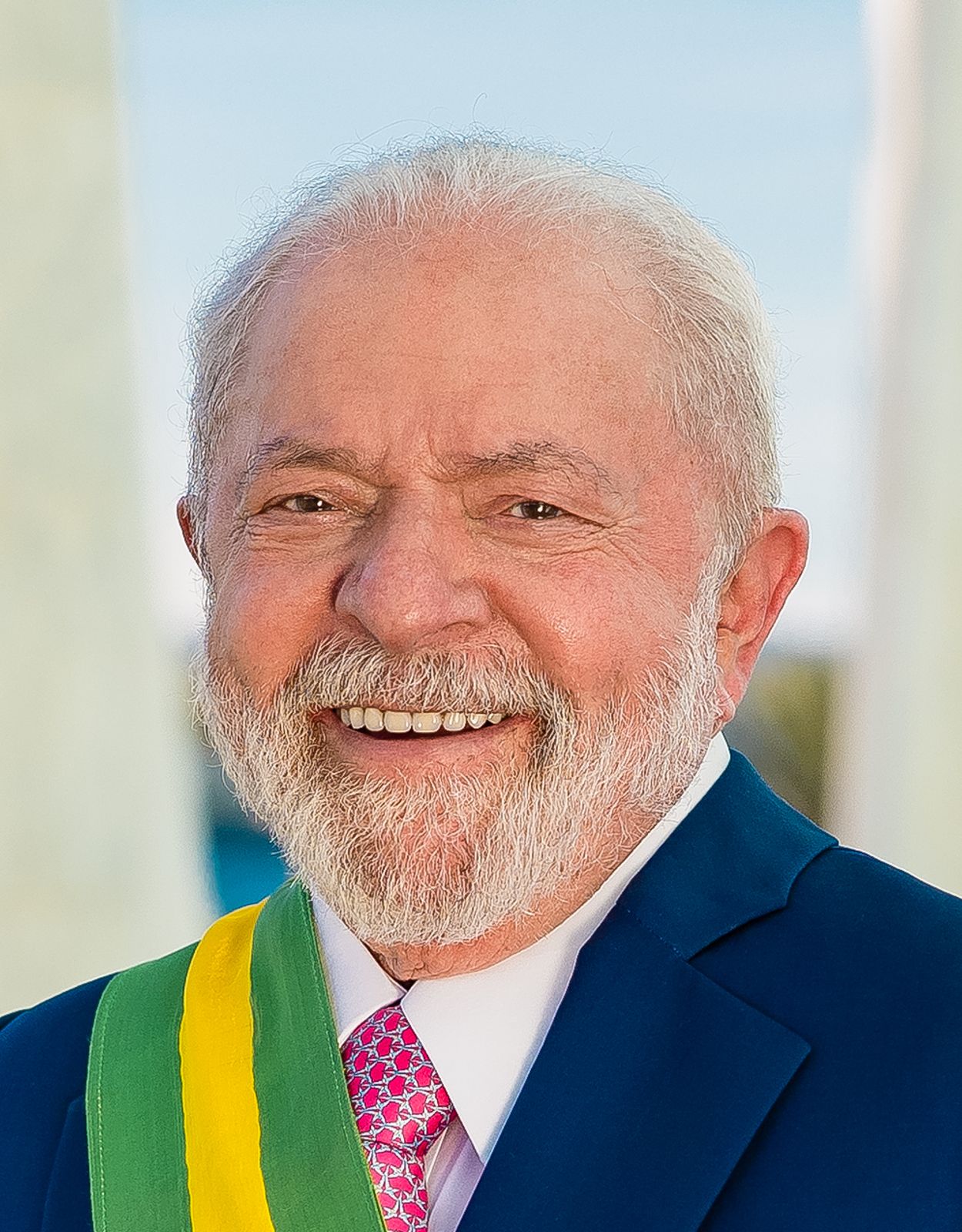
Diverse Nations Unite
The BRICS alliance represents a diverse blend of nations:
- Brazil: A vast South American nation known for its rich cultural heritage, an estimated population of about 214 million, and abundant natural resources. President Lula Da Silva, who had weathered a political storm a few years ago, has returned to the world stage with a mission to help build a multipolar world. On his second stint as president, he took over from the controversial Jair Bolsonaro in whose tenure the deforestation of the Amazon rainforest accelerated. President Lula has been an advocate of expanding the BRICS cautiously. Dilma Rousseff, former president of Brazil heads the New Development Bank with the aim of promoting the use of local BRICS currencies for trade and the eventual creation of a BRICS currency.
- Russia: A Eurasian giant with immense territorial expanse and strategic geopolitical influence. President Vladimir Putin has been at the helm of Russian affairs as either president or prime minister since 1999. He authorized an invasion of Ukraine in February 2022. This has had a significant impact on world food prices and supply, and European regional stability. President Putin was in support of a rapid expansion, and positioning of BRICS as a counterweight to the Western-led G7.
- India: A South Asian powerhouse with a burgeoning population and a rapidly advancing technology sector. It is also one of the largest medicine manufacturing countries. Narendra Modi is the present Prime Minister. He came to power in May 2014. He was barred from entering the US over his role in the 2002 Gujarat anti-Muslim pogrom, but he recently visited the US and signed a deal to establish a US military base in India. Under his leadership, India has been buying Russian oil despite international sanctions. India is locked in a 60-plus-year border dispute with China which has seen recent escalations.
- China: A global manufacturing and economic powerhouse, characterized by its remarkable economic transformation. Xi Jinping, the current president, came to power in March 2013. He launched The Belt And Road Initiative later that year with the aim of making China the center of a connected world trade hub. The country has been financing infrastructural development around the world to this end. China is presently having a border dispute with India along the 'Line Of Actual Control'. President Xi wants to position BRICS as a counterweight to the G7.
- South Africa: The smallest of the 5 founding members of BRICS. She is an African nation with abundant resources, marked by a complex history of struggle and development. The country played host to the BRICS 2023 summit and was put in a dilemma when the International Criminal Court issued an arrest warrant for President Putin, who was meant to physically be present for the meeting, for the invasion of Ukraine. Sergei Lavrov, the Russian Foreign Minister, stood in for Putin. South Africa has been experiencing a slow painful collapse of its power sector.
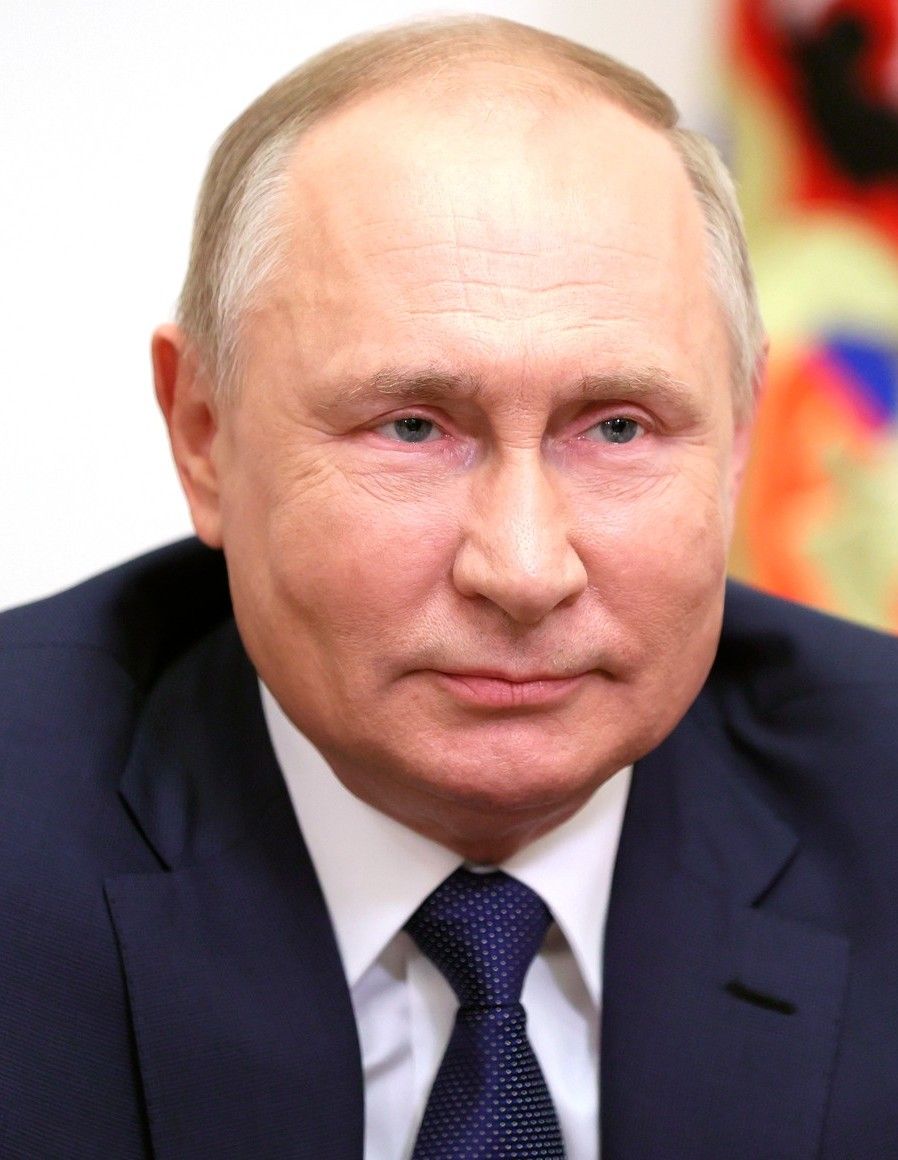
Complex Geopolitical Relations
Navigating the intricate tapestry of geopolitical relations, BRICS member states have a shared interest in fostering economic prosperity and development. Despite their diverse histories and aspirations, they have united to confront shared challenges like climate change and terrorism.
Yet, the alliance isn't without friction, with tensions such as the ongoing border dispute between China and India, the complexity of Chinese operations in Africa, the geopolitical influence of each member on what BRICS should be, and the Russian geopolitical manipulation of grain supplies testing the group's solidarity.
- China and India: A major point of complexity to geopolitical relations within the BRICS bloc is China's opposition to India's bid for a United Nations seat at the Security Council. Both countries have the largest economies and populations of the BRICS nations. Both seem to be unable to put their differences aside on multiple geopolitical issues.
- The dispute between China and India over The Line Of Actual Control further adds to the complexity. Both countries have been having medieval-inspired skirmishes in a disputed region of the Himalayas. Following an agreement of sorts by both countries not to allow their armies to wield guns in the disputed region to prevent a full-scale war, clubs sticks, and, stones have become the weapon of choice for both armies. Presidents of both countries met at the BRICS summit to speak about this.
- Russia and Africa: Russia's geopolitical relations with South Africa have been cordial. The only point of contention is Russia's truncation of the Black Sea grain export deal. Following Russia's invasion of Ukraine, world food prices have soared and a UN-backed arrangement to keep Ukrainian grain flowing has been truncated by Russia despite South Africa's Cyril Ramaphosa's effort to the contrary. Russia has however offered alternatives.
- The geopolitical relations of Russia with Africa are further tainted by the operations of the infamous mercenary group: Wagner. In recent years there has been a steady rise in the presence of the group across Africa which coincides with the decline in the influence and presence of Western countries such as France, exemplified by the recent coup in Niger. It remains to be seen what the long-term impact of Wagner will be on the continent.
- China and Africa: China has become very active in Africa in recent years through its Belt and Road Initiative. It has given loans and helped build critical infrastructure around the continent. However, there has been debate about its ultimate intention as countries that have benefited from the Belt and Road Initiative loans and infrastructure seem to end up in a depth trap.
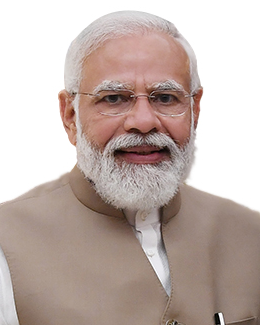
Mission and Collective Goals
At its core, BRICS is driven by a mission to propel economic growth, development, and cooperation among its constituents. Its objectives are multi-pronged and impactful:
- Trade and Investment Enhancement: BRICS strives to amplify trade and investment opportunities within its member states, creating an environment conducive to economic growth. The President Lula of Brazil has been an advocate of the creation of a BRICS currency but that idea hasn't really taken off.
- Financial Cooperation: The alliance aims to harmonize financial systems and facilitate collaborative financial endeavors through its New Development Bank. Founded in 2015 by BRICS nations and headed by Dilma Rousseff, the New Development Bank's goal is to gather resources to support infrastructure and sustainable development initiatives within BRICS and other emerging economies without the punitive conditionalities that come with loans from traditional leaders like the IMF.
- Science and Technology Synergy: BRICS seeks to harness the power of collective knowledge in science and technology to further its member states' development. The BRICS members aren't at the forefront of technological advancement. China for instance is locked in a 'tech-dev' battle with the United States. Huawei, a leading Chinese technological company has had its products and services banned across the G7 countries. Access to critical microchip technology has been cut off by the US for China. The BRICS bloc would probably inherit this fate.
- Addressing Global Challenges: The alliance stands united in addressing pressing global challenges, including climate change and terrorism. Russia and China want to position the BRICS as a geopolitical alternative to the G7's outlook on addressing global challenges. This will inevitably lead to a head-on geopolitical conflict between the BRICS versus the G7.
- South-South Cooperation: BRICS places particular emphasis on fostering cooperation and solidarity among developing nations. This is critical because the established order of international politics for the last 50 years hasn't resulted in any meaningful development for the Global South.
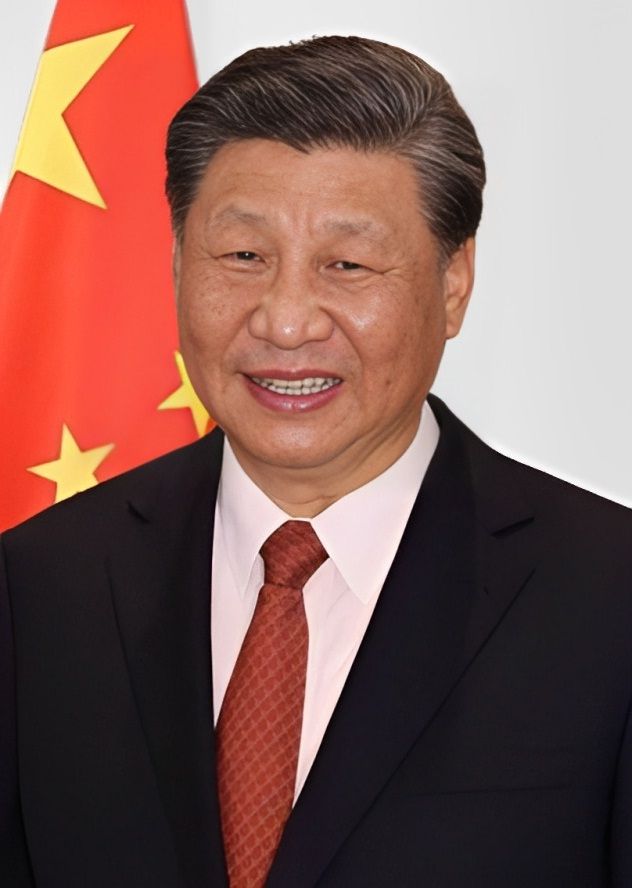
Compared with Global Financial Institutions: Compared to established international financial institutions like the World Bank and IMF, BRICS stands as a more informal coalition. Though lacking the financial clout of these institutions, its immense demographic strength and combined economic output endow it with considerable potential to wield influence on the global economic stage.
Expansion: At the 15th BRICS Summit, 6 new members were added to the bloc: Ethiopia, Argentina, Egypt, The United Arab Emirates, Iran and Saudi Arabia. Iran and Saudi Arabia are significant additions because of their history and strategic geopolitical position globally.
Iran is on the axis of evil as described by Senior President Bush. Heavily sanctioned by the US, Iran has continued to defy the US and the G7 in pursuit of its nuclear power capability. Saudi Arabia was the linchpin in US President Nixon's Petrodollar plan to stabilize the dollar in 1973 after he took the currency off the gold standard.
Saudi Arabia being the world's largest oil producer has, since the Nixon plan, sold its oil in dollars, anchoring the world reserve currency to oil prices. With Saudi Arabia's inclusion in BRICS, the expertise, framework, and experience gained in anchoring the dollar to oil can be ported over to a potential BRICS currency.
Shaping Geopolitical Realities: The emergence of BRICS could herald a transformation in global trade dynamics and security paradigms. As it challenges the dominance of Western powers, competition for resources and markets may intensify. Paradoxically, it could also contribute positively to global stability by bridging the gap between developed and developing nations, providing a platform for conflict resolution.

A Force for Change: While in its early stages and evolving, BRICS possesses the potential to be an instrumental player in the global economic and geopolitical theater. Additionally, its influence could extend to addressing pressing global concerns such as climate change and terrorism.
The path to success hinges on the member states' ability to collaborate effectively, transcending their differences. Navigating these challenges effectively will mean the emergence of BRICS as a force capable of shaping the global South's economic and geopolitical trajectory.
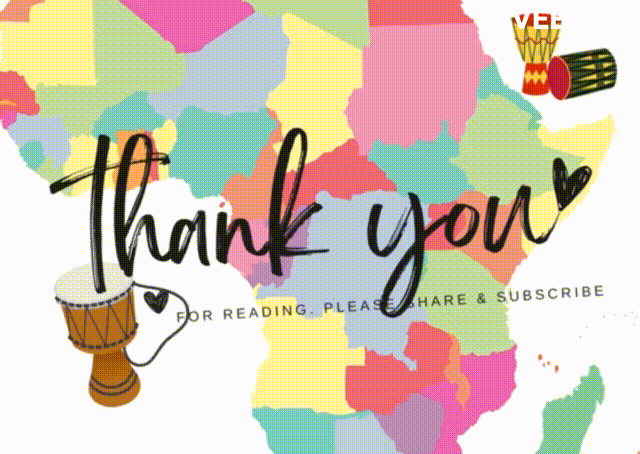
If you enjoyed this article, kindly subscribe to our weekly newsletter: "News From Around The Motherland," to stay updated on opinion articles and in-depth explorations of diverse African subjects. Thanks for reading.


